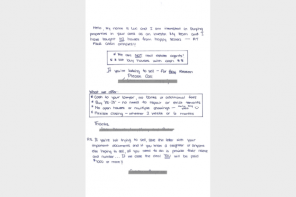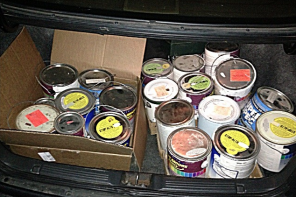Don’t leave money on the table. Price your house to sell not to sit
As a homeowner, you clearly want the highest price you can get when you sell your house. But is the best price the highest price? Maybe. Maybe not. And to get there should you start with the highest list price? Maybe not. Maybe. I know that doesn’t seem to make any sense, but stick with me and I’ll describe what I mean. Let’s start with how the pricing procedure works:
How Professionals Determine Probable Prices
Throughout the sales procedure, purchasers, sellers, appraisers and lending institutions all have a beneficial interest in the precise pricing of your home. However the reality is, there may be some difference between the parties about exactly what price is most suitable. Putting an exact number on a likely sale amount isn’t really as easy as it sounds. When a sales representative or appraiser compares your the home of other equivalent properties (homes very comparable in price, features and age, also called comps), that have actually sold really recently, unless you reside in an area with very limited floor plans and features, a house almost exactly like yours just does not exist.
So we need to pick the homes that are most comparable, and then make changes for the distinctions in features between your house and the equivalent houses. For example, if your home has three bedrooms and two bathrooms, and the comparable home (comp) has three bedrooms and three bathrooms, I would deduct the value of a bathroom from the price of the comp to give me the price your home would probably sell for.
- Home A – 3 Bed, 3 Bath Sold For – $350,000.
- House B – 3 Bed, 2 Bath List Price – $345,000.
Unique Features: The Challenging Part of Pricing
It’s reasonably simple to approximate the value of an additional bathroom or garage parking spot. It gets a little more challenging when the value of other features come into play.
What is the value of a swimming pool or imported marble tile flooring?
What it costs to install a swimming pool, fireplace or custom flooring in your house has no influence on it’s worthiness. Value is determined by what a buyer wants to pay for it, or more importantly, what a bank is prepared to lend on it. Expense does not equivalent worth. Price does not equal value. In the words of Frank Zappa: Information is not knowledge. Knowledge is not wisdom. Wisdom is not truth. Truth is not beauty. Beauty is not love. Love is not music. I know, I know I’m way off topic here. Price is not value. OK? If you spent $70,000 putting in a swimming pool. Thank you very much.
(You’ll get some of that back.)
How the Economic Principle of Scarcity Influences House Values.
Sellers in some cases wrongly think that because they have a feature in their home that is unique, that instantly implies it is of greater value. Scarcity is a standard economic principle known to drive up prices. However scarcity alone does not impact value. The thing must be both limited and valued by the buyer pool.
Winter coats might be scarce in Singapore shops, however that doesn’t imply they fly off the racks when shops stock them. The same result would be found with outdoor kitchens in Waterloo Region. You don’t see them in a lot of homes here, but then, few individuals really desire them so the money spent on them when selling a home is typically much less than the price to install them. (So, if you actually want an outdoor kitchen, buy a home that currently has one or take the loss when you sell your house.).
Sometimes sellers believe that, although many individuals aren’t interested in their home’s unique features, they just need the ideal purchaser to come along, and then they will pay top dollar, due to the fact that they desire that rare thing a lot. What a seller needs to get top dollar is competition, not rare features. Rare features in my opinion generate dubious benefits.
Once your agent or appraiser has actually compared your house to other similar ones and made the price adjustments, they will then have a price range where your home will fall. If I pick five houses to compare your residential property to, and made the adjustments, each one of those houses most likely sold at somewhat various prices. I might tell you that your home will likely sell in between $550k and $565k. That appears like a wide range. Of course, you want the best price when you sell, right? Right, but know this —> the market sets the price. Not you. Not me and not the buyer and his or her agent.
Why Do Some Houses Sell for More Than Others?
The price variations are figured out by the following things.
- Condition ~ Residences with similar features, will not attain the exact same price if one home is immaculately kept and the other has a patchy lawn, and/or heavily worn or broken flooring and shabby wall-coverings. Upgrading older homes to modern requirements can have a favourable impact on price.
- Features ~ While not all features are desirable in a house, there are lots of features that make a home much less desirable. Or in other cases, if a home does not have a particular feature it will command a lower price. For instance, a home with only one bathroom has a much smaller sized purchaser pool than a home with two or more bathrooms and for that reason will sell for less and most likely take longer to sell than an identical house with two bathrooms.
- Location ~ Even properties in the very same neighbourhood will have price variances based on distance to through streets, yard, personal privacy, views, etc.
- Marketing ~ Marketing is what lets the world know that your home is for sale. If not enough people know, you will not get the competition needed to obtain the best price. Excellent photos, expert staging, appropriate pre-marketing, and wide-spread protection through digital advertising all make the property more known to buyers and increase competition. However, even the best marketing cannot save a home that shows poorly due to bad smells, or being unkempt, or is priced too high.
But How Might a Higher List Price Mean Less Money in the Seller’s Pocket?
This involves the psychology of marketing. If your house is priced high for the marketplace, all the buyers that wander through your house will likewise be strolling through similar houses that are the exact same price, however larger and/or with better features. When they walk through the houses, exactly what comes to mind is, “Why would I pay this much for house A, when I can get House B (bigger/better) down the street for the same price?”
It is a very good question, isn’t it?
And so other houses sell and Home A sits. To buyers who are keeping track of the market and know that the average house sells in nine days… they begin to question why House A hasn’t. And, new buyers come into the market and they see that there are ten other houses that just came on the market, quickly selling, but this one really isn’t moving.
Remember that idea of scarcity? Something comparable is going on in this example.
Buyers begin to believe that homes like this are selling fast, but this one is sitting. “How long has it been on the market? Really?” That’s the very first question every buyer asks when they go into a home that
- A) has actually been on the market longer than typical or
- B) isn’t really in move-in condition… which typically correlates with A.
The sellers must be getting desperate, the buyers think. Or that there is something wrong with the place.
Summing up
It is much better to start at the right price than start at a price too high. That’s the fact, Jack. Don’t leave money on the table. Price your house to sell, not to sit




